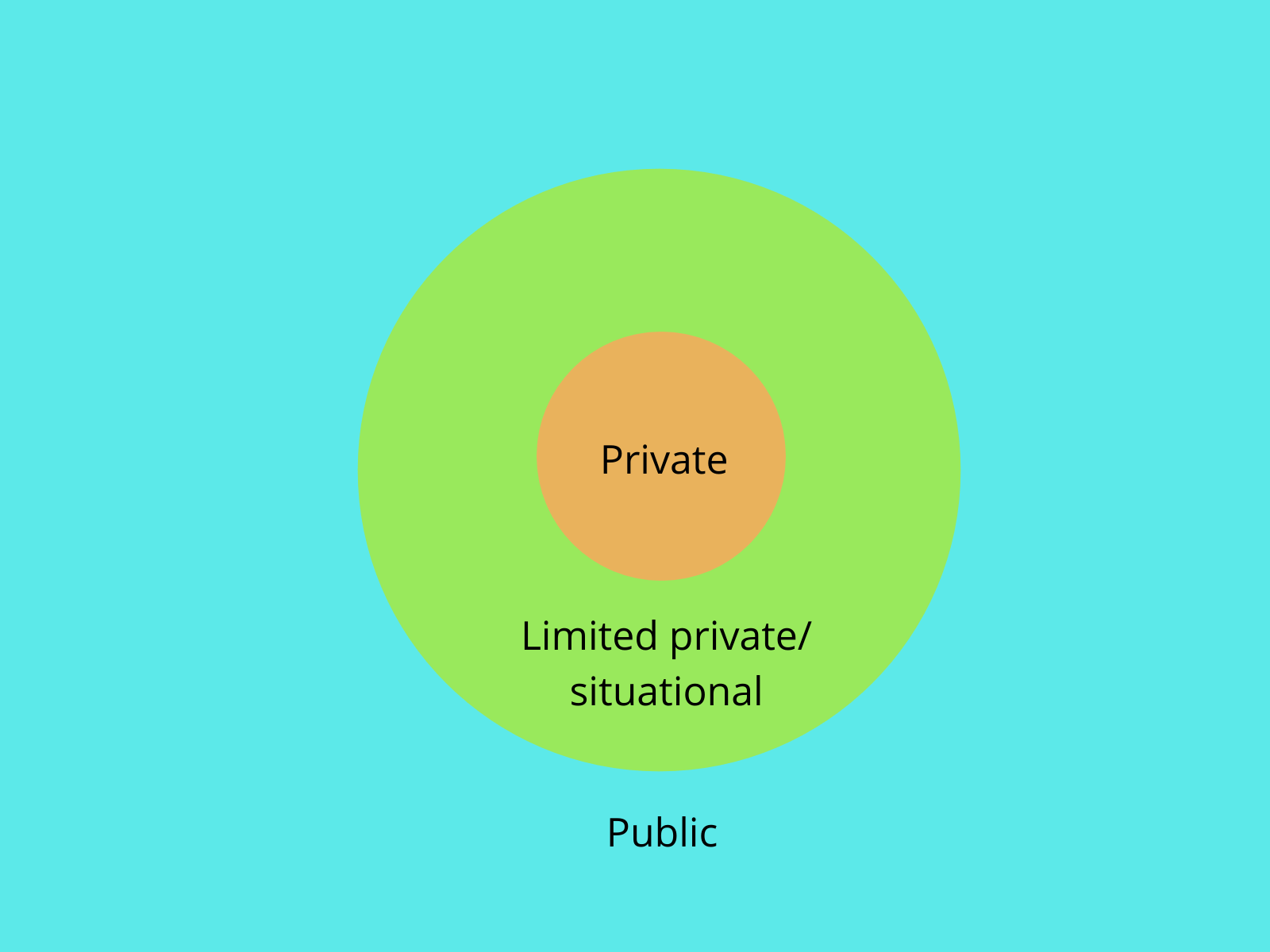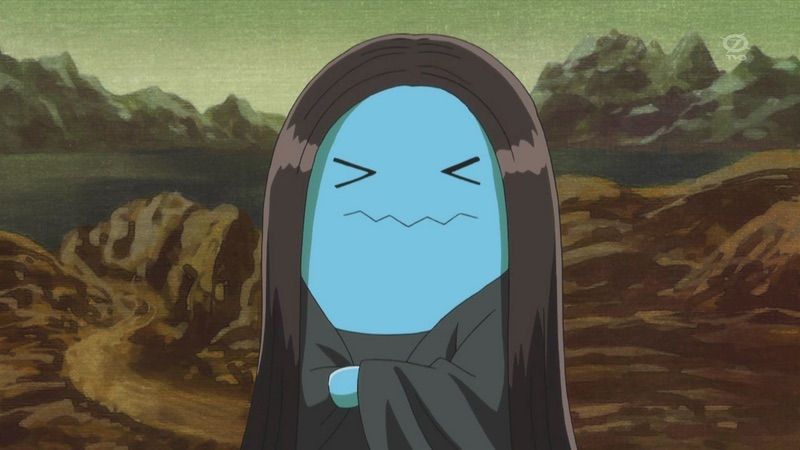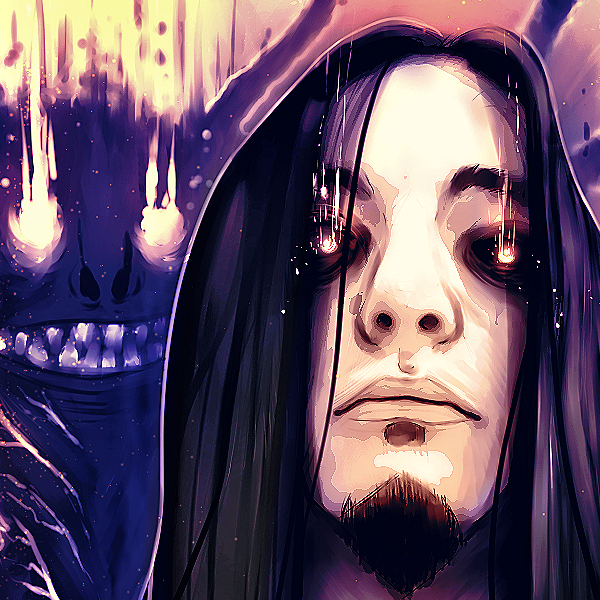Expression of emotions in the Eimai Archipelago
One could easily mistake their expressions for indifference and think that they have a different physiology from the rest of humans. However, a careful observation shows that they can indeed smile, although they most certainly do so at different times and possibly for different reasons than most other cultures.In the eimaui culture, certain kinds of facial expressions are only acceptable in private settings, mainly with friends, family or one's partner. For this reason, they often seem to be emotionless, when in reality they just have other ways of expressing their feelings.
The emotionful age
Relaxed face, expressive brows.
Reasoning
Contrary to popular beliefs, the eimaii are not actually emotionless and experience their feelings as anybody else, albeit in a different manner, depending on who is around them. They use the so-called Three Circles of Formality, a defining feature of their language and culture: private, limited private or situational, and public. The three circles are concentrical, meaning that everything associated with the public circle is also applied to the private one.This is why we hide our feelings and avoid physical contact, Beskra. In doing so, the smiles of our loved ones are a rare and priced gift. Smiles are beautiful and special, so we save them for those who are special to us.The eimaii consider emotional expressions the highest form of intimacy. Nothing is more valuable than a smile from a loved one, and nothing is more offensive than a scowl from a stranger. This is deeply rooted in their religious beliefs, although now everyone follows this tradition, no matter what their beliefs are. According to their animist beliefs, which go back to before the discovery of the Archipelago, one should avoid externalizing too much their feelings, since they are to humans what sap is to trees. Some scholars theorize that this line, which is not actually written anywhere but part of popular culture, is in fact misinterpreted and that it just means that feelings are what gives energy to humans, not that letting them out is dangerous. Other scholars, mostly from foreign countries, have a different theory, claiming that they keep their faces expressionless because of the extremely cold climate of the Archipelago. According to these theories, extreme cold makes it more difficult to smile or move other parts of the face. After some generations, this purely practical reason would have been integrated into their culture to the extent of creating a taboo.
Expressions
Strange folk, those northerners, always looking at you as if they were more important. Like, can't they just smile? Not even a little bit?Emotional expressions can be classified into six categories, detailed below. All of them are acceptable in the private circle.
Eyebrows
Eyebrows are by far the most expressive part of the body in public. They are used to express surprise and disbelief, among other emotions. Slightly raising both eyebrows is used as the public version of smiles, while pointedly frowning them is the equivalent of wrinkling your nose in disgust.Eyes
Eyes can be used in limited private circles in different ways, such as rolling them to express exasperation or closing them while breathing soundly to indicate that you are losing your patience. While they are generally not used in public circles, their usage is not frowned upon.Nose
Using your nose to express any kind of feeling is completely forbidden in both public and limited private circles. Doing it in front of other people is almost considered an insult and a violation of one's privacy, especially among adults.Mouth
Expressions involving your mouth, such as smiling, are allowed in limited private spaces as long as they are subtle. Subtle means that only the corners of the mouth move and the lips are kept closed.Shoulders
Shoulders, together with any other body part, can be used to express any emotion in any kind of situation. Some examples include shrugging or sighing.Spontaneous expressions
Expressions such as laughing or crying are difficult to contain, so, while they should be kept to private circles as much as possible, they are not considered a sign of disrespect as long as the person is trying to contain them. A common way of containing these expressions is trying to keep your mouth shut while using your hand to hide it.| Category of expression | Public circle | Limited private/ situational circle |
Private circle |
|---|---|---|---|
| Eyebrows | Acceptable | Acceptable | Acceptable |
| Eyes | Avoid | Acceptable | Acceptable |
| Nose | Unacceptable | Unacceptable | Acceptable |
| Mouth | Unacceptable | Acceptable (with limits) | Acceptable |
| Shoulders and body | Acceptable | Acceptable | Acceptable |
| Spontaneous expressions | Avoid | Avoid | Acceptable |









I absolutely love the kind of thought that went into this. There's so much nuance to body language that people tend to take for granted that you've put into this that it almost warrants being a language article instead! I would highly recommend @mentioning this article whenever describing a character whose body language abides by these rules, as it's something that can shed a deep insight to their culture and upbringing.
- Appraciate in your comment box should be Appreciate
- However, a careful observation will show that they can indeed smile: As general feedback, when describing something current or modern try to describe it as if it's actively happening in the moment, and avoid future tense. Present tense is the most active voice which comes across as the most poignant for a reader. For this line, for example, I'd recommend However, careful observation shows that they can indeed smile
- I like your word emotionful but just want to verify that it's a stylized choice because the correct is emotional. Making it its own special word is great, I'm just making sure it's intended!
- express their feelings as anybody else: Given the context I think that express should be experience. I think this because you use "albeit", which means you're establishing a contrast, so the clause before it shouldn't be something which agrees with it, so experience would be a stronger clarifying word about them and in context.
Great article, it inspires me to do something similar!Check out my summercamp by going here and checking out any of my gold-star articles!
I kind of felt like a sociologist, experimenting with different facial expressions and trying to imagine how a different society might view them hahaha. Thanks for your comments and language corrections, I'll correct them now! Indeed, I came up with emotionful specifically for this article. All eimaii people are emotional, they just show it in a different way. But kids... they are so full of emotions they can't help smiling all the time! :P